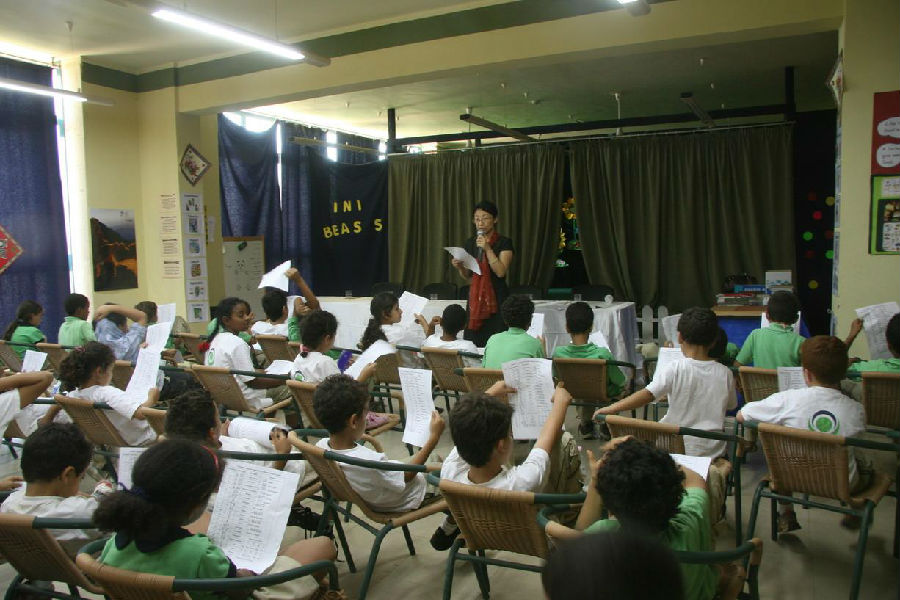In today's podcast, Caixin looks at a school in Cambodia that teaches Chinese as a second language.
在今天的新闻播报中,财新网将走进柬埔寨的一所学校,那里把中文看成是第二语言。

If the global linguistic landscape is changing, one primary school in Cambodia is doing its part to embrace the Chinese language.
如果全球的语言格局正在改变,那么柬埔寨的一所学校正在把中文收入其中。
From 1994 to 2011, China accounted for 20 percent of the total US$ 40 billion worth of investment projectsapproved by the Cambodian government. In some ways, the shift in trade ties has paved to way to a closer sense of social involvement between the two countries, as reflected in a bilingual Mandarin school in PhnomPenh. Founded in 1915 by a group of overseas Chinese businessmen from Guangdong, the Duanhua school catersmainly to the ethnic Chinese community. The school boasts more than 16,000 students on its two campuses inthe capital city and has seen its intake of ethnic Cambodian students account for 5 percent of the studentpopulation, up from 2 percent 10 years ago. Li Huiming, principal of the school said China's growing economic strength has accelerated an interest in learning Chinese within the country. There is a large amount of investment in Cambodia from culturally-Chinese communities from Hong Kong to Malaysia, and the ability to use mandarin as a common external language for business communication can facilitate a student's job prospects. In the past two years, Duanhua saw its enrollment rise by 700 students. China considers Cambodia an ally in Southeast Asia and has been an important economic booster of the country's economy in recent years as its largest foreign investor.
从1994年到2011年,柬埔寨政府同意在柬的中方投资占据了总共400亿美金投资项目的20%。从某些方面来讲,两国贸易往来中的转变为两国的社会融合铺平了道路,金边的一所双语汉语学校把它展现的淋漓尽致。这所学校创办于1915年,创办人是一群来自广东的商人,端华学校主要接收的是中国的少数民族学生。在柬埔寨的首都金边有两所学校,学校人数超过了16000人,柬埔寨的少数民族学生占据了5%,十年前这个数字还是2%。学校校长李慧明说中国经济的快速发展提升了民众学习中文的兴趣。从马来西亚到香港,许多受到中文教育的人士在柬埔寨的投资占据了大多数,作为商业交流的中文更能够提高学生的职业未来。在过去的两年中,端华的就业人数增长了700人。中国认为柬埔寨是中国在南亚的盟国,中国作为外国投资在柬埔寨经济中占据了重要的地位。
For Caixin Online, this is Diana Bates.
这是黛安娜·贝茨为您带来的财新网报道。
译文属可可英语原创,未经允许,不得转载。












